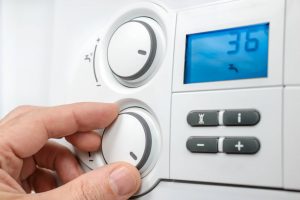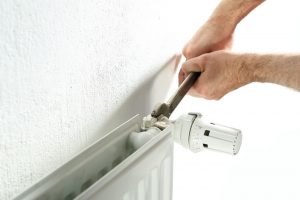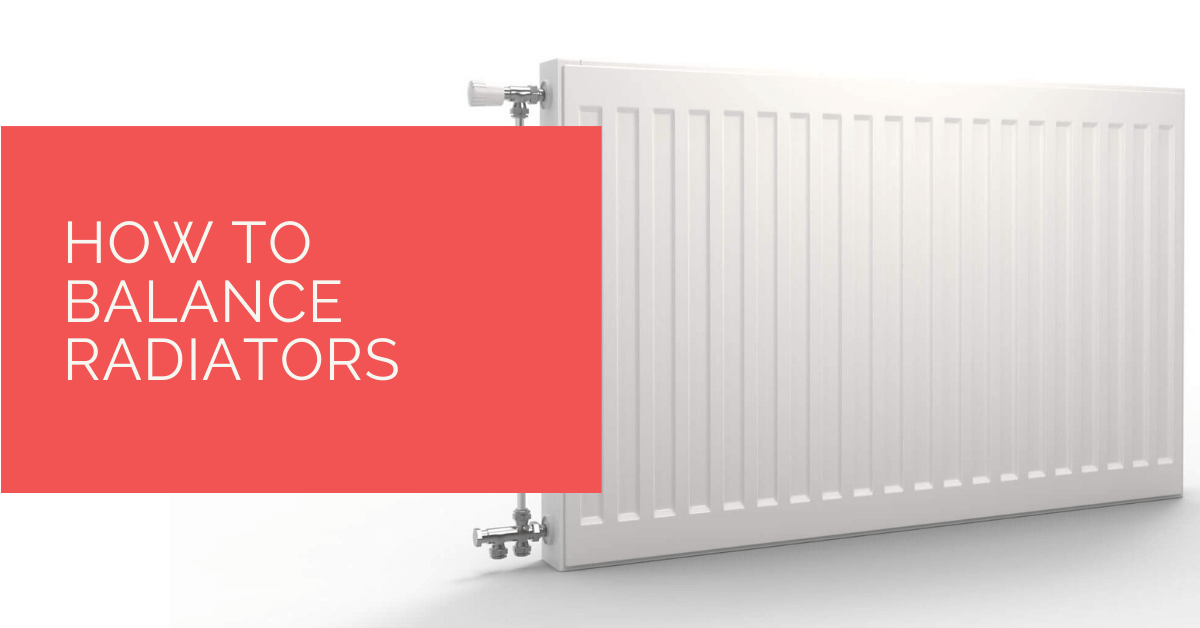Are you searching for an effective way to keep your home warm in the most energy-efficient way possible? Of course you are, and an excellent way of achieving this objective is to ensure that you balance radiators throughout your house.
Have you been wondering why some of you radiators are cold when others are hot? If so, the chances are that your radiators need balancing and not bleeding. But what is radiator balancing and what’s the difference between bleeding and balancing?
Plus, how will balancing be able to solve the heating issue? And most importantly, how can a novice go about performing DIY radiator balancing? Well, the good news is that home owners can balance their radiators themselves without having to call a heating engineer.
Contents
- 1 Guide to Balancing Radiators
- 1.1 Tools Required
- 1.2 Step 1: Turn Off The Central Heating
- 1.3 Step 2: Bleed The Radiators
- 1.4 Step 3: Get Familiar With The Valves
- 1.5 Step 4: Open All Radiator Valves
- 1.6 Step 5: Test How Your Heating System Works
- 1.7 Step 6: Turn Off The Heating Again
- 1.8 Step 7: Check On First Radiator To Heat Up
- 1.9 Step 8: Measure The Temperature
- 1.10 Step 9: Move On To The Other Radiators
- 1.11 Step 10: Balance Is Restored! Sit Back And Relax
- 2 Balancing Radiators FAQ
- 3 Heat Pump Source: Reliable Heating and Cooling Solutions
Guide to Balancing Radiators
Are you a confident DIY’er? Or are you a hands-on kind of home owner? Whichever the case, here’s a detailed step by step guide on how to balance radiators.
Tools Required
- Screwdriver
- Radiator-bleeding key
- Pen & paper
- Adjustable spanner or Lockshield valve adjuster
- Multimeter with thermometer function or Digital thermometer
Step 1: Turn Off The Central Heating
Turn off your home heating system and allow it to cool completely.

Step 2: Bleed The Radiators
Next, bleed all radiators, so you have an equal temperature when you start balancing radiators.
Step 3: Get Familiar With The Valves
Different models of radiators have unique valves. Familiarise yourself with all the valves on your radiators. You’ll need to find the lockshield valve which has a cover – remove the cap with your screwdriver.
Step 4: Open All Radiator Valves
Move on to valves of other radiators and open them up by turning them anti-clockwise.
Step 5: Test How Your Heating System Works
Turn on your home heating system and tale your pen and paper and write down the order the radiators heat up. Radiators that are near the will often get hot first. You might want to have an extra pair of hand for accurate results.
Step 6: Turn Off The Heating Again
Turn off the heating system and give your radiators time to cool.
Step 7: Check On First Radiator To Heat Up
Now that the radiators have cooled off turn the home heating system back on and turn your attention to the first radiator to heat up. Turn the lockshield valve clockwise to close it and then proceed to open it again but this time by a quarter turn.
Step 8: Measure The Temperature
After the radiator has heated, record the temperature of the pipe leading to one of the valves. Next, take the temperature of the pipework on the opposite side of the valve. Observe the difference then gently open the lockshield valve until you have a 12°c difference between the two.
Step 9: Move On To The Other Radiators
Here, repeat step #8 for all radiators in your house.
Step 10: Balance Is Restored! Sit Back And Relax
Your radiators should now be balanced, and you can sit back and enjoy!
Balancing Radiators FAQ
What Does Radiator Balancing Mean?
It means adjusting all your radiators to ensure that all radiators emit consistent heat throughout the house when the central heating system is switched on. Radiator balancing, which is also referred to as hydronic balancing, helps match the speed of radiator heating through the even distribution of heated water.
Why Do You Balance Radiators?
As mentioned before, balancing your radiators ensures that there is even heat distribution in every room. Typically, when you install a new water heating system in your home, you have new radiators and valves. Also, a professional will help with the installation as well as the balancing of the radiators. Therefore, if you recently had new radiators installed, then you don’t have to worry about balancing radiators for a while.
However, over time, issues with unbalanced radiators pop up and you find yourself dealing with different rooms having different heating speed. Unbalanced radiators can be quite frustrating, particularly during fierce winter nights when you need that heat fast. That’s why it makes sense to balance your radiators to get matching heating speed in all rooms in your home.
So, what brings about the difference in radiator heating speed and temperatures? Well, radiators are positioned at different distances from the boiler. If radiators are unbalanced, there will be an uneven flow of heat leading to those nearest to the boiler getting the most heat and those furthest getting the least.
When you balance your radiators, not only will you ensure constant temperatures in all rooms, but you will also prevent certain areas from getting too hot and stuffy while others remain chilly regardless of how high your turn up the heat.

What Is the Difference Between Bleeding and Balancing Radiators?
Before you start addressing the issue of uneven heating in your home, you need to understand the difference between bleeding a radiator and balancing a radiator. Balancing a radiator should not be confused with bleeding.
So, what exactly distinguishes the two? Well, balancing radiators as aforementioned is about making sure radiators emit steady and consistent heat in all rooms. On the other hand, bleeding is about rectifying the problem of a single radiator that is heating up slowly, or in some instances not at all — mainly because there is air trapped inside
Trapped air makes it impossible for the hot water from the boiler from heating the whole radiator. By bleeding, you let the air out hence preventing cold spots on your radiator. Like balancing a radiator, you can follow a step by step guide on bleeding radiators to learn how to bleed radiators yourself.
Heat Pump Source: Reliable Heating and Cooling Solutions
At Heat Pump Source, we take pride in our unwavering commitment to serving the UK with top-tier HVAC solutions. From the efficiency of heat pumps and the cool relief of air conditioning to the warmth of boilers, radiators, and underfloor heating, our dedicated team is always at the forefront of innovation. We understand the unique needs of every household and business, and we strive to provide dependable health and cooling products and services that are tailored just for you. Ensuring your comfort and satisfaction is our utmost priority. Whether you have questions, need guidance, or require support, we’re always here to assist. Please don’t hesitate to contact us; we’re eager to be of service.
About the Author
At Heat Pump Source, our articles are the product of a collaborative effort among a team of highly skilled HVAC experts. Our dedicated professionals, hailing from diverse backgrounds in heating, ventilation, air conditioning, and refrigeration, contribute their extensive knowledge and experience to every piece of content. This multidisciplinary approach ensures comprehensive coverage. Our commitment is to deliver authoritative, reliable, and tailored advice to meet the unique needs of every household and business across the UK.

